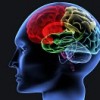Smart Drugs and Should We Take Them
 I was looking back through the ADHD section of G2C Online this week, namely the interview with Philip Shaw on ADHD and medication. According to Dr. Shaw, up to 90% of children with ADHD who take Ritalin, Adderall or Strattera show improvements on cognitive tasks . This is quite an impressive statistic and got me wondering whether these drugs enhance normal cognitive functions and, if so, are people taking them? The answer to both these questions seems to be a firm “yes”.
I was looking back through the ADHD section of G2C Online this week, namely the interview with Philip Shaw on ADHD and medication. According to Dr. Shaw, up to 90% of children with ADHD who take Ritalin, Adderall or Strattera show improvements on cognitive tasks . This is quite an impressive statistic and got me wondering whether these drugs enhance normal cognitive functions and, if so, are people taking them? The answer to both these questions seems to be a firm “yes”.
In April 2008, Nature published results of an informal online survey of readers’ use of cognition-enhancing drugs, namely Ritalin, Provigil, and beta-blockers. As we all know, online polls are notoriously slippery, but the results are nonetheless illuminating. One in five respondents claimed to have used had “used drugs for non-medical reasons to stimulate their focus, concentration or memory.” Furthermore, 80% of respondents felt that healthy adults should be able to take these drugs as a matter of personal choice, while 69% were willing to risk mild side effects to take such drugs.
A recent article by Magaret Talbot in the Guardian newspaper echoes these findings, pointing out that neuroenhancers (smart drugs) are endemic in college campuses throughout the United States. Talbot highlights a 2002 study from Cambridge University where 30 volunteers were given Modafinil (originally developed to treat narcolepsy) and then tested on a battery of cognitive tests. The group performed better on several important measures of cognitive ability relative to controls, leading to the conclusion that “Modafinil offers significant potential as a cognitive enhancer”. Recent studies of drugs developed to treat ADHD and Alzheimer’s have produced similar results. In short, not only are people taking the drugs, they are are also benefiting from it.
So if these drugs work, why are we not all taking them? Well, for one thing we still don’t know much about the long-term impact – but this is a criticism that can be aimed at every new medication. This issue aside, the idea of taking cognitive enhancers strikes me as unsettling. The prospect of taking drugs even when we are not sick seems to stem from the white collar obsession with productivity. In many respects, it speaks of desperation – to wring out the last drops of perspiration from an over-taxed mind. I don’t see a promise of inspiration, but rather the depressing proposition of grinding efficiency. If life is about finding a balance, neuroenhancers seem to tilt the scales in an unhealthy direction.
| Print article | This entry was posted by connolly on September 21, 2009 at 11:43 am, and is filed under G2C Online. Follow any responses to this post through RSS 2.0. You can skip to the end and leave a response. Pinging is currently not allowed. |

